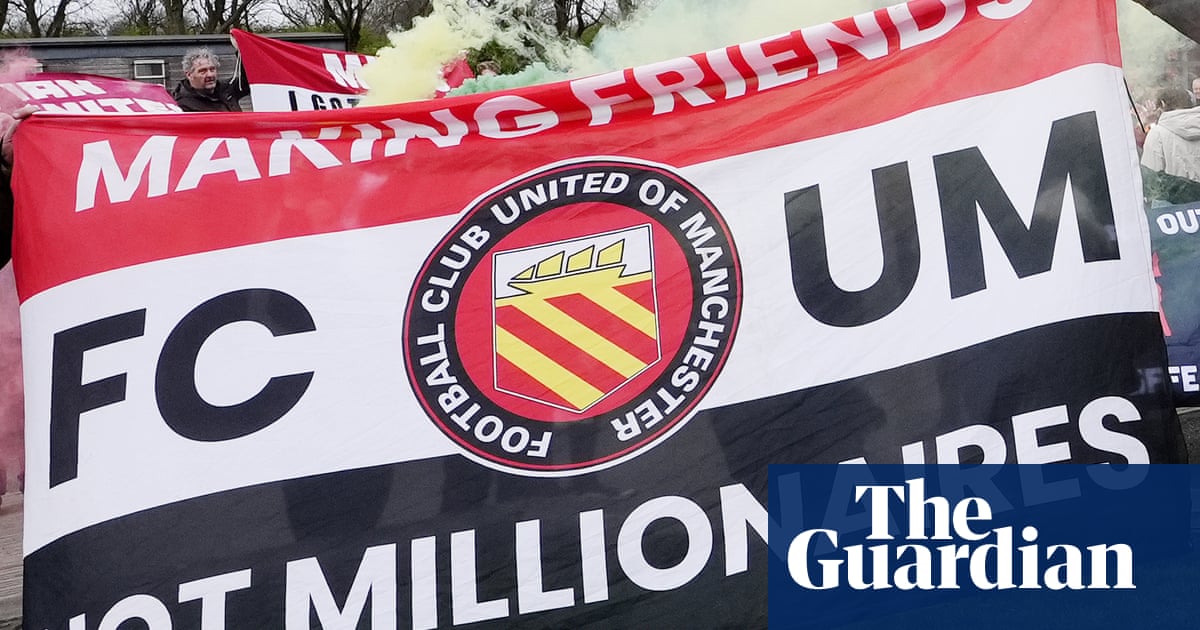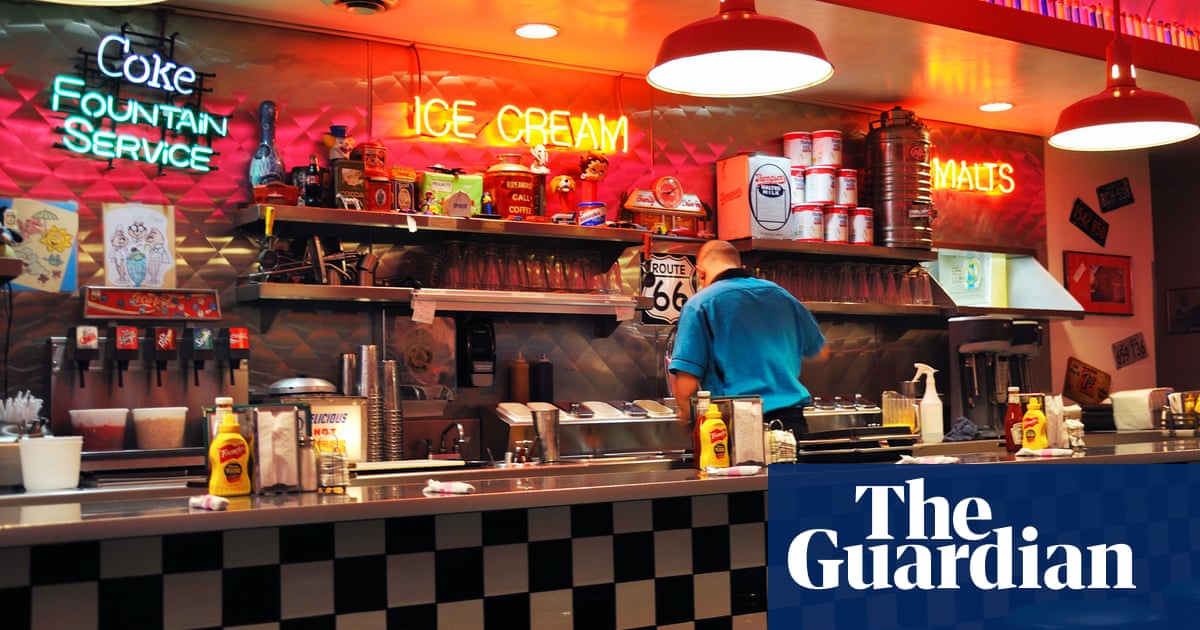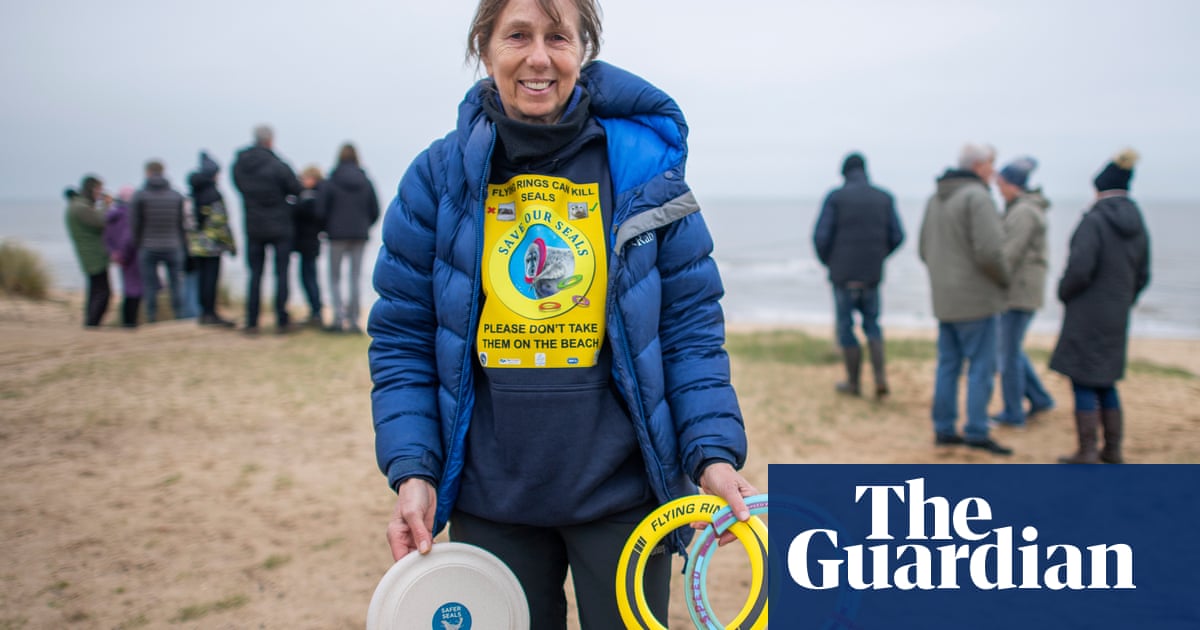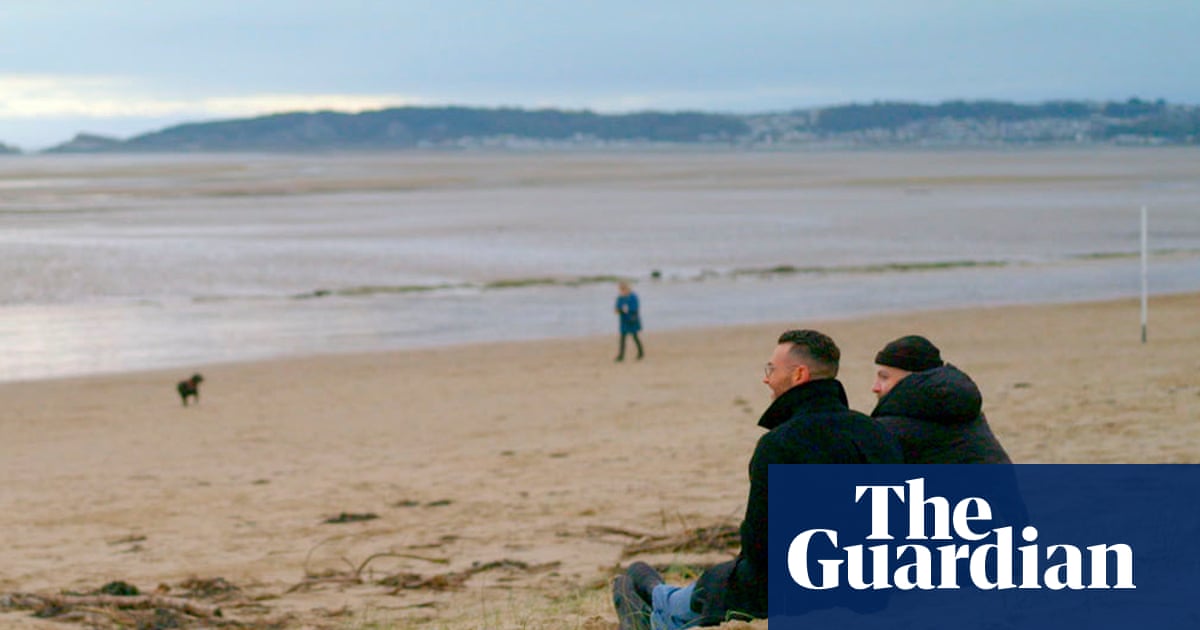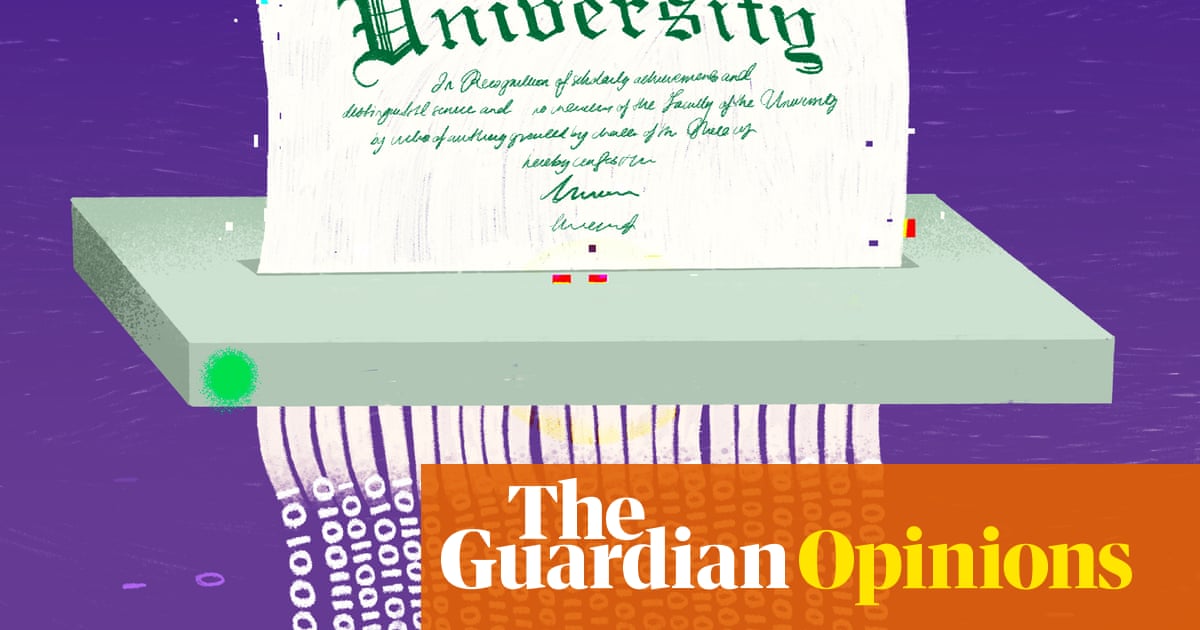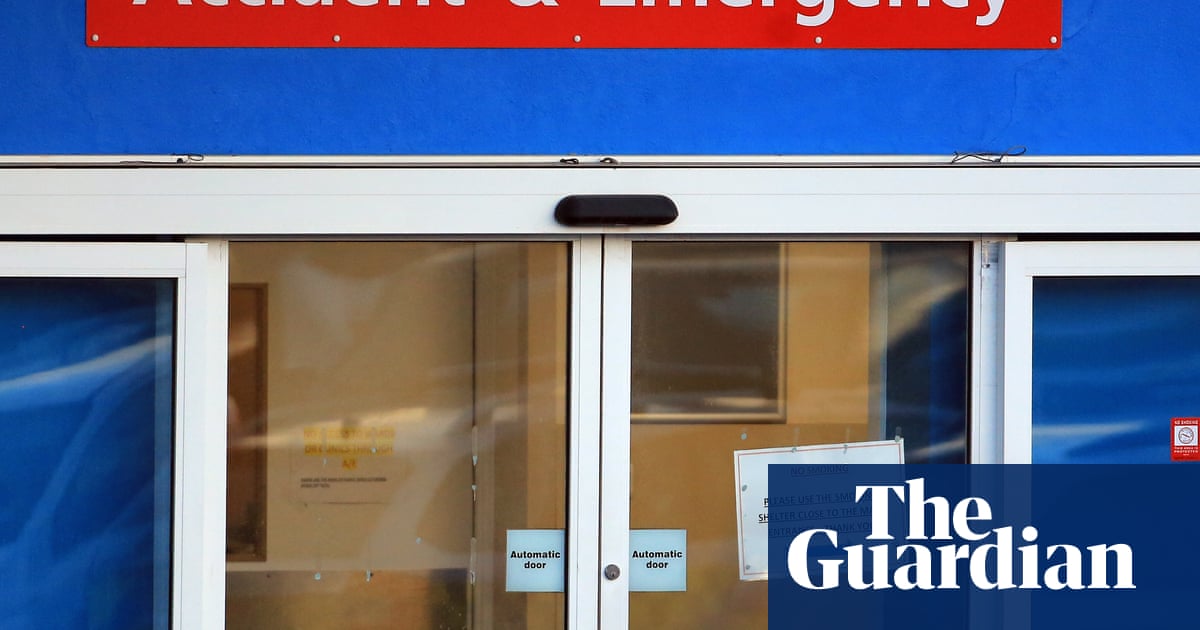Ewan McKay is a quiet, trusting man with a lifelong passion for golf. Growing up in the 1950s in Angus, a windswept county on Scotland’s east coast, he found the sport a perfect outlet: a shared activity that reduced the pressures of socialising. Later, as an adult, golfing allowed him to rub shoulders with wealthy farmers who became useful contacts for his expanding business, selling Scottish seed potatoes to English farms. Once he sold that business, McKay had enough money to follow his dreams and create a course of his own.
In 2002, McKay bought a plot of land in St Andrews and secured planning permission for a golf course and private members’ club. But two years later, he received an offer of £20m to buy the land. “It was the kind of sum you couldn’t turn down,” he recalled. He made a profit of £13m from the sale, and while he was golfing down in Kent in 2004, a friend suggested he ought to meet a solicitor called Stephen David Jones, who was a master at whittling down tax bills. “He said, ‘What are you doing about tax?’” McKay told me. “And I said, I wasn’t thinking about tax. I just pay it. And he said: ‘I can introduce you to someone brilliant.’”
When McKay spoke to Jones, the lawyer suggested that he put his money into a trust on the Caribbean island of Nevis. Jones’s law firm would act as the trustee and McKay’s children would be registered as the beneficiaries. This, Jones explained, was the smartest way of arranging his tax affairs.
McKay did his due diligence on Jones, inviting him up to Dundee to meet lawyers he knew. “Every single one of them thought he was plausible, charming and obviously extremely well known in respect of tax,” he told me. Jones seemed the epitome of an urbane, chivalrous Englishman. He read the Financial Times, sent his son to Eton and was rarely seen not wearing a waistcoat. He lived in a red Victorian mansion block in Little Venice, a prime area of west London. After meeting Jones, one of McKay’s lawyer friends said, “You’ve got yourself a cracker here.”
In January 2006, Jones’s law firm, Jirehouse, registered the Scotia Trust Foundation in Nevis. Since Jirehouse was its sole trustee, only Jones and his colleagues had direct access to information about the assets it held for McKay’s family. Jirehouse created three further Scotia entities in Nevis. And, as Jirehouse was a director, secretary, partner or trustee in all four of the Scotia entities, Jones could sign paperwork on Scotia’s behalf without consulting McKay.
Jones assured McKay that the complexity of the Scotia network was a sign of its sophistication. “He kept saying, ‘Don’t worry, everything is going great,’” McKay recalled. After McKay bought a new home in Angus with an adjoining shooting estate, Jones suggested that one of the Scotia entities should be listed as the owner, explaining this would be more “tax efficient”. Jones was often vague about the structures he set up on McKay’s behalf, but McKay assumed that this vagueness was a way of insulating him from the prying eyes of tax inspectors.
Jones was affable and loquacious, and McKay started to think of him as a friend. He invited Jones to shooting parties at his home and at another local estate, Fettercairn, and Jones and his wife attended the wedding of McKay’s daughter. Jones often told McKay about various property deals he was involved with – an ocean-front development in Nevis, a swanky hotel in Iceland – and soon, Jones started to take his own private shooting parties to Fettercairn. McKay sensed that although Jones seemed to be from an affluent background, he enjoyed being around people who were richer than he was, as if pretending that their money was his own. Once, McKay received a bill from Fettercairn for a shoot that Jones had hosted. The estate manager said that Jones had charged the party to Scotia’s account. When McKay confronted Jones about this, he said it was an error.
In 2010, McKay repurchased the plot of land in St Andrews. His plan was to finally start building the private members’ club and golf course. The Feddinch Club would target high net worth foreigners, and membership would be by invitation only. The price for joining as one of the club’s founder members was £250,000. Michael Bowes-Lyon, a first cousin once removed of Queen Elizabeth II, agreed to become the club’s honorary president, and a glossy brochure advertised its proximity to an airstrip for private jets.
From the outset, Jones was eager to assist. He suggested that Jirehouse become a partner in the Feddinch Club, and arranged for McKay to fly to New York and meet some investors and an architect. McKay had never worked on a project of this scale before, and was keen to secure financing, so he brought Jirehouse on board as a partner. “My dad’s his own worst enemy,” said McKay’s son, Bruce. “If he meets somebody who appears successful, he’ll take their advice.”
In early 2013, McKay decided to move closer to St Andrews to be nearer to the golf course. He found a bungalow with a wide view of the site and the sea beyond. On Jones’s instructions, Scotia would be listed on the deeds for McKay’s new home, just as it had been for his house in Angus. Shortly before the purchase went through, however, Jones told McKay there had been a change of plan. Instead of Scotia’s name appearing on the property deeds, Jones and another Jirehouse colleague would be listed as the property’s owners. McKay panicked when he heard this, but Jones reassured him. Jirehouse would be holding the house on trust for him and his family, he said, so it would still technically belong to them. McKay continued to worry. He couldn’t shake the feeling that it wasn’t him who owned his new house – it was Jones.
Jirehouse’s offices occupied two townhouses on John Street, a short walk from the British Museum. The five-storey building had an olive green front door, a stone portico and black metal railings. The firm gave the impression of a private office that dealt with old money. Its meeting rooms were wood-panelled, its letters to clients were printed on creamy Conqueror paper, and its business cards were embossed with a curling coat of arms. Jones had previously worked at two magic circle firms, Freshfields and Slaughter and May, and Jirehouse’s senior team included solicitors with similarly elite backgrounds. “I was kind of in awe of the place,” said one former employee, James (not his real name). “If you hadn’t come into contact with that world before, it could be intimidating.”
Of the 30 people I spoke to about Jones – former clients, business associates, employees, schoolfriends and neighbours – one description kept cropping up: “English gentleman.” The firm he had built recalled a time when the City was run on handshakes between men in bowler hats who dined at clubs in St James’s. (Jones himself was a member of the Carlton Club, where the Conservative party was founded.) “It’s old values. And old values probably on the basis of which the City of London was built,” he told the Telegraph Business Club, a media channel that created a short advertorial video about Jirehouse.
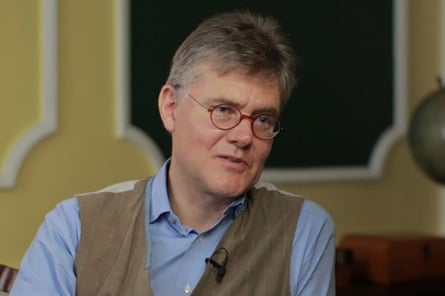
Towards his staff, Jones behaved with the generosity of a Victorian patron. Jirehouse sponsored staff visas and paid for law school training for some paralegals. One of Jones’s closest associates, Zuleyha Tohtayeva, began as a barista whom Jones recruited from a nearby branch of Starbucks. Tohtayeva, who was from Turkmenistan, had scant legal experience when she joined the firm as a secretary in 2008, but she quickly rose through the ranks, becoming a paralegal and then a senior associate. “He enjoyed ‘rescuing’ people,” James told me.
This benevolence stemmed from Jones’s Christian faith, which shaped the firm itself. He attended All Souls Church in Langham Place, and later joined the congregation at Holy Trinity Brompton, a wealthy evangelical church in Knightsbridge. “HTB”, as the church is known, is where the Alpha Course, an evangelistic programme aimed at sceptics, was first invented. The hedge fund manager Paul Marshall, who founded GB News, sits on its outreach board.
At work, Jones sometimes signed off emails with “Much love in Christ, Stephen”, or “Blessings, Stephen”. He would occasionally read a passage from the Bible at the Monday morning staff meeting, and he was particularly fond of Hebrew references. A mezuzah was affixed to Jirehouse’s doorway, though Jones was not Jewish, and legal documents would sometimes be stapled with a small paper triangle printed with “Isaiah 62: 6-7”, a reference to an Old Testament verse in which watchmen, posted on the walls of Jerusalem, keep an eye over God’s kingdom. “He really felt what he was doing, that there was some kind of higher calling,” said another former employee, Sarah (not her real name).
Looking back now, after the truth about Jones’s transgressions have come to light, it is hard not to search for clues. If his piety was sincere, the effort he put into cultivating his gentlemanly image suggested an underlying insecurity. In the Telegraph video, his voice sometimes slips from received pronunciation into something less plummy. Former Jirehouse staff I interviewed couldn’t tell me anything about Jones’s background except that he had worked at magic circle firms. “At the time, I just perceived him to be very posh. And it’s weird saying that … because I’m not sure I’d think that any more. I’d think of him more as a blank now,” said James. The absence of other details about his life before Jirehouse was striking. Where did he come from? Who was he, really? Last autumn, I contacted his brother, Tim, asking to talk.
“Perhaps we should meet,” Tim wrote back. “It’s a long painful story … the roots of my brother’s downfall started many years ago.”
On a windy autumn day, I met Tim Jones at the bar of the St Pancras hotel in King’s Cross, London. Tim is an infrastructure consultant whose demeanour flits between easy-going humour and pained introspection. He knew Jones not as “Stephen David”, but as “Steve”, and over the following months, we had a series of long and occasionally painful conversations in which Tim seemed to find a kind of catharsis. “It says in the Bible that the truth will set you free,” he told me. “Maybe this is part of my own road to freedom.”
From an early age, Stephen possessed a remarkable charm, a confidence that bordered on hubris, and a talent for identifying people richer than himself. “He would make you feel as though you were the only person in the room,” said Tim. “He’d ask you questions about you. He never drew a two-way conversation. He would always flip it back to you.” Tim was the eldest of five children; Stephen was born 19 months after him, in September 1959. Their father was a chartered surveyor and their mother worked as a medical secretary. Tim, Stephen, their two younger brothers and their sister grew up in Luton, a predominantly working-class town north of London. Their family didn’t have much money, but neither did most people in their neighbourhood. Their parents emphasised honesty, hard work and devotion to God.
The Jones family worshipped at a church on a council estate that belonged to the Open Brethren, a conservative strand of evangelical Christianity. The schedule was intense. Saturday was devoted to Bible study and Sunday was for church service. There was a prayer meeting on Monday evening and a Bible reading on Wednesday, and in their free time people were expected to go “tracting” – knocking on doors and pushing slivers of paper through letterboxes to spread the word of Jesus Christ. “It was continual,” said Tim. “You rarely got time to yourself.”
At the Brethren church, Stephen befriended a man called Godfrey Henderson, who lived in a Victorian house a stone’s throw from the Joneses. His home was cosy and cluttered: the Aga stacked with pans, the shelves lined with bottled fruit. Henderson was a consultant anaesthetist in the NHS, and Tim sensed that he gave Stephen a view into a life that was larger and more worldly than his own. Henderson frequently travelled abroad for missionary and surgery work, subscribed to Reader’s Digest and National Geographic, and would take thumbed copies of the Guardian to read at the theatre during intervals. The two would chat about Henderson’s missionary work. Sometimes, Stephen tended to the house while he was abroad. “And it kind of elevated Steve,” Tim recalled.
The Jones children studied at local comprehensive schools, and Stephen was the first in his family to go to university. He enrolled at the University of Reading to read law in 1979, and after graduating he joined Freshfields, a prestigious law firm in London. Stephen had always been academically gifted, and his parents sometimes seemed in awe of him. “It was always Tim who would get punished, and Stephen would get away with it,” recalled a close family friend. “Stephen could do no wrong.”
Once he’d started working in the city, Stephen would bring exotic cheeses and champagne to family gatherings. When his parents visited London, Jones put them up in five-star hotels. During one of our conversations, Tim mentioned the story of Jacob and Esau, twin brothers in the Book of Genesis. Jacob tricks their blind father, Isaac, into giving him the birthright blessing that was intended for Esau, the first born, causing a lifelong rift between them. “Steve always said he should have been born the first son,” Tim said. Stephen once incorporated a company with a client called Prodigal Son Ltd.
In 1992, Stephen moved to Slaughter and May in Hong Kong. He quit the firm just two years later, having a crisis of faith about his career path. After taking a course at a school for missionaries, he spent six months travelling. “Whilst in Armenia I felt there was a need to bring to third world countries […] God’s principles of running an economy,” Jones wrote in a newsletter he sent to his friends and family in December 1995. “I fear in the west we have much to learn on this account and much to unlearn.”
His experiences abroad convinced Jones to pursue a different career path, so he set up a trading operation shipping walnuts and coffee from India to Armenia. He described his ambitions, somewhat grandly, as “establishing bilateral trade between the Christians in these countries”. He named the company Jirehouse, after the Hebrew word for God’s provision, Jireh, and a reference to the house of God. But despite Jones’s efforts, it didn’t take off. By 2003, the missionary that Jones had recruited to help run the business had left.
Jones then pivoted to a more familiar field from his time in the City: tax law. Jirehouse recruited a Jersey-based director, and in 2004 the firm opened an office on Nevis, a jurisdiction that allows people to sequester wealth with greater secrecy than just about anywhere else in the world. Among tax lawyers, the island has a seamy reputation. Two KCs I spoke to told me they made a point of not dealing with businesses registered there, owing to its reputation for tax evasion. To Jones, though, the secrecy of the island was central to its appeal.
Soon after Jirehouse opened its office in Nevis, Jones acquired about three hectares of land on Herbert’s Beach, a prime strip of Atlantic waterfront, and used his local contacts to wrangle a permit that would allow him to build a holiday resort. He convinced Tim to invest a total of £500,000 in this project, which would be called Ocean Reef Resorts.
When Tim flew out to Nevis in July 2006, two things struck him. First, the island’s tropical beauty, and second, the corruptibly close relationship between lawmakers and businessmen. “These are people that do not believe they function within the law,” Tim told me. To them, “the law is there to be played with, to be challenged, to be got round, to be manipulated”.
In 2005, Jones was introduced to a brash property developer called Scot Young. His residences included a large villa in a luxurious Miami suburb, a rectory house in Oxfordshire, a house near Regent’s Park and an apartment in Knightsbridge. He socialised with Russian business people in London, including Boris Berezovsky and his business partner Ruslan Fomichev, a property developer. “Back then, London was friendly to foreigners,” Vasily Peganov, Fomichev’s business partner, told me. “They respected the money.”
In February 2005, Fomichev invited Young to invest in a property deal to redevelop land in the centre of Moscow. “I knew, at the time, that I did not have this amount of money and would need to bring in other investors,” Young later recalled. Beneath a veneer of boundless wealth, he was financially stretched. Young owed the Bank of Scotland just over £25m and his creditors were beginning to circle. After one of the investors in the Moscow deal issued a freezing order against Young for £2.35m, and the Bank of Scotland called in some of its loans, he declared insolvency.
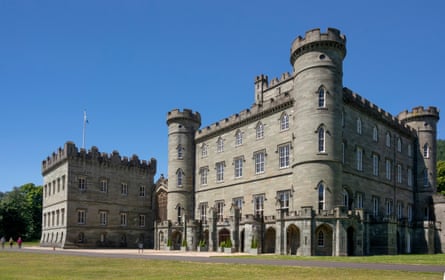
Jones agreed to step in and clean up the mess that Young had created. It was a huge opportunity to burnish his credentials with a group of very wealthy businessmen, and he helped devise a plan whereby a new company bought out the investors whom Young had recruited. His solution earned Jones the respect of Fomichev and his business partner, Peganov. Both men were still recent arrivals in London, and Jones quickly assumed the role of well-connected fixer. He introduced Fomichev and Peganov to private bankers. He set up trust structures to manage their wealth. He advised them on their tax affairs. “We trusted him,” Peganov recalled. “We became friends.”
Jones grew more comfortable asking his new clients for favours. In 2011, he approached Fomichev for a loan, promising him a monthly interest rate that was higher than he would get at a bank. Jones explained that the loan would provide funding for his clients’ projects – McKay’s golf course, a hotel in Iceland owned by another client – and that it would be secured against these assets. Over time, Jones borrowed more and more money from Fomichev, always explaining that the loans were intended for client projects. Fomichev saw no reason to disbelieve him, and Jones was never late in paying the interest. During this time, Jones was expanding his operation, opening outposts in Switzerland, Cyprus and Luxembourg.
Increasingly, Jones was behaving more like a financial matchmaker than a lawyer, encouraging his clients to invest in one another’s projects, and sometimes investing in them himself. In 2013, he told Ewan McKay that he had found a Swiss gem dealer who wanted to invest €6m in his golf course project in St Andrews. The businessmen who had brokered the deal wanted £125,000 commission, and both the commission and the €6m would be paid in cash. Bruce McKay, Ewan’s son, thought it strange that the gem dealer wanted to pay in cash, and even stranger that Jones insisted that Bruce withdraw the £125,000 commission from a money transfer shop in Streatham, south London, rather than a bank. “The excuse was, it will get held up in the bank, and drawing that amount of currency from one account would raise question marks,” Bruce told me. When he went to the money transfer shop, he found a “guy was bundling the money into 25k bundles, and putting them into what looked to me like the bags to pick up my dog turds”.
After he collected the money, Bruce and his father drove overnight from London to Milan, where they picked Jones up from the airport the next morning. Their meeting with the gem dealer was due to take place at the Grand Visconti Palace hotel, and Jones had brought a bag containing a change of clothes and a money counter. Bruce had transferred the £125,000 into a briefcase. The three men pulled into the hotel’s underground car park and took the lift to the lobby.
When they arrived, Bruce sensed that something wasn’t right. An S-Class Mercedes was parked outside the building’s entrance. Inside the lobby, two men in shiny, ill-fitting suits were waiting for them. The two men greeted Jones, snatched his bag off his shoulder, flung a large sports bag at the lawyer, and rushed out of the lobby and into the car, which sped off. It took a moment for Bruce to realise what had happened. “It was one of those ‘Are you shitting me?’ moments,” he recalled. “And I was like, ‘Dad, this is a fucking heist.’”
The two thieves had taken Jones’s bag in the belief that it contained £125,000. Thankfully, Ewan was still clutching the briefcase that contained the money, but once the thieves discovered they had stolen a bag that contained nothing more than a money counter and some spare clothes, Bruce figured they’d be back. Panicking, he rushed his father and Jones down to the car park. Ewan opened the sports bag once they were in the Range Rover. “Immediately I realised it was full of forged notes,” he recalled.
Bruce drove them as fast as he could towards the Swiss border, heading for Jirehouse’s office in Lausanne. Jones was sitting in the middle seat in the back, and seemed visibly distressed. “He was squealing like a girl,” Bruce said. “He kept saying, they’d spent so long going over the contract, back and forth, back and forth, and why would you spend so much time on a contract that was meaningless?”
Once they arrived at the Lausanne office, Jones tried to put Ewan and Bruce’s minds at ease. But the relationship was irrevocably damaged. “I said, Bruce, we’ve made a hell of a mistake. This guy doesn’t know what he’s doing,” Ewan recalled. The Milan fiasco had revealed two major flaws in the gentleman lawyer. He was willing to get involved with disreputable characters, and he was entirely naive about the risks of doing so.
Yet it turned out to be extremely difficult for McKay to disentangle himself from Jones. “He held the purse strings for everything,” Bruce told me. “He was God.” When McKay was diagnosed with lung and prostate cancer the following year, it became ever harder for him to keep track of the complex network of companies that Jones had created for his family. Bruce visited Jones while his father was recovering from chemotherapy, and the lawyer seemed kind and understanding. “He said, don’t worry, we’re your pals, let’s just concentrate on your dad’s health,” Bruce told me. “And there’s always a small bit of you that hopes your gut feeling is wrong.”
Some of Jones’s associates made his staff nervous. More than once while reporting this piece, I was told that I ought to be “careful”, the implication being that not everyone who Jones had worked with respected the law. Almost everyone mentioned Scot Young, who fell from a fourth-floor apartment in Marylebone in 2014 and was impaled on the railings below. It was possible that his death was a suicide, but his family suspected something more nefarious. According to a BuzzFeed investigation, Young had become so worried about being assassinated in the months before his death that he sought protection from a criminal gang. Four of his associates, including the oligarch Boris Berezovsky, had recently died in similarly mysterious circumstances.
Even so, the Metropolitan police declared Young’s death unsuspicious. A coroner later found that his death could not be ruled a suicide, but since the police have never reopened the case, the exact cause of death remains a source of speculation and conspiracy. Michelle Young, Scot’s ex-wife, who filed for divorce in 2007, insisted to me that Scot’s financial meltdown was a ruse devised by Jones to obscure Young’s financial assets, and thus deprive her of a fair divorce settlement. In March 2006, Scot had given power of attorney to Jones, allowing him control of his business interests in the Moscow property deal, which Jones then shifted to Nevis. One theory, suggested to me by Michelle, is that Jones made off with these assets. Another possibility is that the assets were never as valuable as Scot made out. (“Young had been running empty for years,” Fomichev told me. “He was buying properties, mortgaging them immediately to buy another property. It was like a big card game.”)
What is certain is that, like Scot Young, Jones was pretending to be something he wasn’t, socialising with people richer than himself, and projecting an aura of success that was untethered from reality. Gradually, Jirehouse’s office began to symbolise the gulf between Jones’s self-image and the dissolution that lay beneath. On the outside, it was grand and beautiful but in the basement, the kitchen was sometimes populated with slugs, and staff would take turns on “dishcloth duty”, since the cleaner only visited once a week. Sarah, the former Jirehouse employee, told me that the rent would often be paid late, and that Jones would sometimes challenge the landlord over spurious issues, such as the state of the garden or right to light.
Jones was also getting into serious debt. He had racked up a large bill with the law firm Mishcon de Reya, following an unsuccessful court case he pursued against Young’s former lawyer, and had resorted to borrowing half a million pounds from Fomichev to settle his bill. He was also struggling to get the Nevis development off the ground. His brother, Tim, had been trying since 2008 to retrieve the money that he had invested in the project. It was only when Tim threatened to bar Stephen from his son’s wedding in 2015 that he finally stumped up some of the money. At the wedding, Stephen seemed stressed. He mostly stayed in his hotel room, taking work calls and firing off emails, and appeared only briefly at the meal.

“I really think Stephen felt he was due a big payday, provided he could keep his head above water for a period of time,” said Sarah. “I’ve got friends who work in professional services like this … they always think, ‘My next move is going to be the big one, I’ll be managing director at JP Morgan, and all this debt I’ve incurred will be sorted out.’” More than one former client told me that rather than ringfencing their money in Jirehouse’s bank account, they later learned that Jones had been dipping into this account whenever he had a cashflow problem or urgently needed to repay a debt. “I get the impression it was just one big pot of money, and whoever shouted the loudest would get paid back from it,” said Bruce McKay. Yet there also seemed to be a hierarchy. While Fomichev always received the interest repayment on the loans each month, the McKay family often found it impossible to get Jirehouse to administer payments from their family trust.
It is impossible to pinpoint exactly when Jones crossed the line from using tax avoidance strategies for his clients to fleecing those clients. Having pushed so aggressively against the boundaries of UK tax laws, perhaps it wasn’t surprising that Jones found himself tempted to go one step further and break the law himself. In 2009, Jirehouse organised a loan for £300,000, which was secured against McKay’s house in Angus. McKay was not informed. In 2015, Jirehouse took out a loan for £826,880 from a lender that specialised in high-interest sub-prime mortgages. The loan was secured against the land where McKay was building a golf course, and against his new bungalow. It bore monthly interest of 1.5% – amounting to a steep annual interest rate of 18%. Once again, McKay said this was done behind his back.
The deeper Jones went into debt, the bolder he grew. “All it takes is a couple of bad decisions for you to be in £2m of debt, and then in a year’s time it becomes £2.5m, and then that becomes £3m,” said Fomichev. Vasily Peganov told me that between 2014 and 2016, Jirehouse took out two loans secured against his flat in Belgravia; the first for £1.6m and the second for £3.1m. At the time, Peganov said he knew nothing about either of them.
Many of Jirehouse’s London staff lacked the blue-chip credentials one might expect from a boutique tax firm serving high net worth clients. “The majority of young people there wouldn’t have been able to get a job elsewhere,” said James, the former Jirehouse staff member. Jones took pride in the firm’s cosmopolitanism, and Jirehouse advertised that its staff spoke Pashto, Russian, Serbo-Croat and Turkmen. Sarah speculated that there was another reason Jones liked to surround himself with people on work visas. “It meant that a) they probably didn’t know what was going on, and b) if they did, their primary concern was protecting their work status.”
Not all of Jirehouse’s staff remained silent. Three former staff members contacted the Solicitors Regulation Authority (SRA). One, who wrote to the regulator in 2010, was concerned that the firm was struggling to pay its debts. Another reported the firm in 2013 and said that Jones appeared to be borrowing money against his clients’ assets. That same year, a third whistleblower wrote that “Mr Jones is taking funds from the business in what appears to be an inappropriate manner”. According to them, Jones even paid for his son’s school fees at Eton using Jirehouse’s money.
The SRA has far-reaching powers to investigate any law firm in England. It can turn up unannounced, appeal to an independent panel to close a firm, demand that staff hand over their computers and seize documents. It can refer solicitors to a disciplinary tribunal that can impose unlimited fines, strip solicitors of their practising certificates and bar them from ever working again. But the two whistleblowers I spoke to felt the SRA hadn’t taken their complaints seriously enough. The SRA typically gives law firms seven days’ notice if it intends to visit – a precious window of opportunity. Not long after one of the whistleblowers had reported Jirehouse, Sarah told me that they got a call from a former colleague who still worked there. The colleague said:“[The SRA] told us they’re coming in next week. So I’ve spent all night shredding documents and writing up new ones.”
Most of Jones’s clients were newly wealthy men who were strangers to the upper rungs of the British class system. Most of them were multimillionaires, not billionaires. But in the spring of 2018, Jones was introduced to a more powerful and sophisticated client. Discovery Land Company was a US property firm that built high-end holiday resorts. The company was owned in part by John Paul DeJoria, a self-made California billionaire. Discovery wanted to buy Taymouth Castle, a grand Victorian estate in the Scottish Highlands, in order to develop it into a luxury golf club with a cluster of new private houses. DeJoria was adamant that his identity remain a secret, lest the seller of the castle use DeJoria’s immense wealth as a bargaining chip to secure a higher purchase price.
Jones advised that if Discovery wanted to keep DeJoria’s name a secret, they should use one of Jones’s companies, Esquiline Asset Managers, to buy the castle. In April 2018, Discovery wired $14,050,000 to Jirehouse’s client account to cover the castle purchase. On 6 December, one day before the sale was due to complete, Jones emailed explaining that there had been a hitch. Jirehouse needed time to undertake “compliance checks” on some of the money. To prevent the sale from falling through, Jones asked Discovery to send an additional $9.3m, which would cover the funds that were still being checked. In effect, Jones was asking the company to pay for the castle twice, but he assured Discovery’s lawyers that once these checks were done, Jirehouse would refund this $9.3m promptly.
Discovery sent the money across, and the purchase of Taymouth Castle completed. But by the end of December, they were still waiting on a refund. DeJoria and the firm’s owners were growing increasingly suspicious. They hired Gibson Dunn, a major international law firm, to investigate the transaction. By February 2019, Jones had agreed with Gibson Dunn’s lawyers that Jirehouse would put the funds it was holding on behalf of Discovery into a separate bank account. Once the checks were complete, Discovery would get its money back.
Then, in March 2019, Discovery found that Jirehouse had taken out a £5m loan against Taymouth Castle from a small mortgage company called Dragonfly Finance. “The delays in returning the moneys were suspicious enough, but discovering that Jones had borrowed money against the property without telling the client was on a completely different level,” recalled Ed Levey KC, Discovery’s barrister. Levey applied for a freezing order against Esquiline Asset Managers, the company Jones controlled, and at a hearing held at the high court in London on Friday 15 March, Jones gave an “undertaking” – a legally binding promise – to pay back the money he owed to Discovery by 4pm on Tuesday the following week.

But on the following Monday, Jones tried to wriggle out of his undertaking. He told the court that he realised the money he owed to Discovery happened to be in what he called, obliquely, a “longer-term investment portfolio”. Levey told me that Jones looked like someone “who knew the house of cards he’d built was about to topple over”. If Jones failed to fulfil the undertaking, there was a risk that he would be guilty of contempt of court – which could carry a prison sentence. His other clients were starting to suspect their money wasn’t safe. In April 2019, Fomichev didn’t receive the monthly interest payment on his loans. Peganov’s ex-wife received emails from Harrow and Westminster, the schools her sons attended, informing her that the fees which were usually paid out of their family trust were late. Jones hosted an emergency meeting the following month at the Halkin hotel near Buckingham Palace with his wealthiest clients (Ewan and Bruce McKay weren’t invited). “He was trying to persuade everybody that he would repay everything,” said Fomichev. The mood was strained, and Jones gave his apologies with the sombre conviction of a disgraced MP.
Yet Jones still seemed confident that he could fix the problems he had created. “It was quite extraordinary that he remained so placid, so positive about his capacity to move things forward,” recalled Kevin, a Jirehouse colleague (not their real name). “If anything, he was too at ease.” Jones wouldn’t be able to keep practising as a lawyer in Britain after Discovery had taken him to court, but he seemed unperturbed. “He was saying, it doesn’t matter if I get struck off. I’ve got job offers from entities in Switzerland,” recalled Bruce McKay.
Jones remained calm even on Friday 3 May, when the SRA turned up at his offices and informed him, while he was walking down the stairs to greet them, that he was formally suspended. A team of three officers went from floor to floor, seizing laptops and ensuring nobody was shredding documents. Over the next four days, contractors employed by the SRA collected nearly 1,500 boxes of files from Jirehouse’s Bloomsbury offices and storage facilities in Oxford and Essex. Nine years after the first whistleblower had contacted the SRA about Jirehouse, the regulator finally started gearing up to have Jones suspended.
In the end, the courts decided the matter ahead of the SRA. At a hearing on 16 August 2019, Antony Zacaroli, a high court judge, sentenced Jones to 14 months in prison on four counts of contempt. Once he was sentenced, Jones was struck off the solicitor’s roll. His mother, his wife and his son all turned out to the high court of justice in London to watch the judge deliver the sentence. For a solicitor who seemed to think he was above the law, it was an extraordinary fall from grace. “When he got that one year [sentence] for contempt, I felt almost a sense of disappointment,” said Sarah. “I thought, this is such fertile ground … like, hold on, there’s clearly an awful lot more here to uncover.”
Once Jones arrived in Pentonville prison, he wrote a letter to Ewan McKay. By this point, McKay had grown to despise Jones. But he was also wary of alienating the lawyer, fearing that doing so would only make it more difficult to regain control of his assets. “The number of times [Jones] basically threw the toys out of the pram because Dad had got frustrated,” Bruce McKay recalled. “And I would come in as the mediator and calm things down.”
Ewan McKay read the blithe tone of Jones’s letter as an insult. “Time seems to have slipped by quickly since the fateful day of 16 August,” Jones wrote. “Once inside, one is so immune to daily life on the outside and therefore the personal impact will only be really felt on release.” Jones did not seem contrite. He twice reminded McKay in his letter that he was a “civil” prisoner, underlining the word “civil” for emphasis. “Most people wonder why I am even here and appear more discerning than a high court judge,” he wrote.
In a letter he wrote to Tim, however, Jones seemed less confident. “How I ended up in this position I do not know,” he said. “Sixty years seem to have evaporated into nothing.” He was particularly concerned that the judge had referred the case to the police and the Crown Prosecution Service (CPS). There certainly seemed to be sufficient evidence to mount a criminal prosecution: Jones had allegedly stolen more than $9m from a client, secretly taken out a mortgage on their castle, and refused to say where he had hidden their money. But when Discovery’s barrister, Stephen Kay KC, wrote to the police to ask about the status of their investigations 18 months after they had received the case, he was shocked by the response. “The file had been sent, and that was it. They had done nothing,” Kay told me.
A poorer businessman might have decided to cut their losses at this point, but DeJoria was a billionaire, and he wanted revenge. “John Paul has the capacity to take things through right the way to the end, which no one else could afford to do,” said Henry Anderson, a property developer and friend of DeJoria’s who had been acting as Discovery’s UK agent. “What Stephen did was the equivalent of being the skinniest, tiniest guy and walking up to the biggest bruiser in the playground and throwing a punch in his stomach.”
When the police decline to investigate a crime and the CPS therefore doesn’t prosecute, the only option for a person seeking justice is to pursue what’s known as a “private prosecution”, which can be prohibitively expensive. The rise in these private prosecutions has coincided with deep cuts to the criminal justice system, and there is now a growing industry of lawyers serving wealthy individuals who can afford to pay for justice, just as they pay for private schools and private healthcare.
Kay’s team already had a mountain of evidence, but Jones had proved himself a master escape artist. Having served his sentence for contempt, Jones was now out of prison and living back in Little Venice, where he had cultivated an interest in gardening, Tim told me. Over the two-year period leading up to the criminal trial, Jones changed his team of defence lawyers twice, which delayed the trial. A date was finally set for November 2022.
Discovery’s case hinged on a simple premise. “The money had gone. It had never been accounted for,” Kay said. Rather than getting into complex questions involving the mechanics of offshore finance, Kay would focus on the key issue. Jones had long denied any allegations of criminality, so Kay planned to ask him one question: “Where is the money?” If he couldn’t answer, this would surely establish his guilt.
The hearing at Southwark crown court in November 2022 could have been a theatrical final act, in which Jones finally confessed his crimes during a hostile cross-examination. But a few days before the trial began, Jones decided to plead guilty to fraud. He didn’t give evidence, he wasn’t cross examined and, on the day of his sentencing, he quietly filed into the dock, wearing a pink checked shirt and a blazer, and carrying a Waitrose tote bag. The judge was contemptuous, calling Jones’s actions a “rank act of dishonesty”. Then, addressing Jones directly, he said: “Your heart must have leapt when you heard the CPS and the police had decided not to prosecute such an obviously prosecutable case.” He sentenced Jones to 12 years in prison. It is one of the longest criminal sentences a British lawyer has ever received.
Only Jones, and perhaps a small handful of individuals, know exactly what he did with the money. One theory is that he spent it on repaying existing debts. “Ten million sounds like a lot, but he probably spent it very quickly in just patching things up,” Fomichev told me. Another theory is that Jones pocketed Discovery’s money, stashed it in Nevis, and is counting down the days until he can enjoy it in his retirement. The mystery of what, ultimately, compelled Jones to steal the money is no less murky. Perhaps he was worried about something more threatening than a prison sentence. “He might be spending the rest of his life looking over his shoulder, because look at what happened to Scot Young,” said Sarah. Another lawyer who was familiar with Jones suggested that his reasons had more to do with arrogance. “I don’t think he knew he would get caught, or that he couldn’t replace the cash.” (I wrote to Jones in prison, asking if he would like to speak for this article, but did not hear back.)
After a protracted legal battle, Jirehouse’s insurer, Axis, was forced to pay out $7m to Discovery Land in early 2024. The case has given some of Jones’s former clients hope. After Jirehouse went into administration, Fomichev, who lent about £15m to Jones, learned that these loans weren’t actually secured against anything. There was therefore little he could lay claim to. His trust is now pursuing Axis through the courts for £20m. So, too, is Peganov’s family trust. He and his ex-wife are at risk of losing their apartment in Belgravia, since one of Jirehouse’s creditors is attempting to repossess it.
Ewan McKay has lost almost everything. He said that Jones had drained his family trust, mortgaged the land intended for his golf course and mortgaged his bungalow. The land for the golf course was seized by Jirehouse’s creditors, and McKay and his wife are planning to move house in order to pay off the mortgage. Until then, McKay will still have a direct view of the golf course, which is now being redeveloped by another company. “Dad’s looking over the fence at someone else building out his dream,” said Bruce.
Jones’s clients often asked me how any of this could happen in a country that prided itself on the rule of law. “The legal system in the UK is built to screw people,” Peganov said. There are likely to be many more characters like Jones who never end up in prison because they were not foolish or desperate enough to target someone as rich as DeJoria. “There are scammers left, right and centre, because they know the police won’t touch them,” said Kay, the criminal barrister. “Jones was in that category, too … he was calculating that he could get away with it. And the attitude of the CPS and the police completely proved that point.” (An SRA spokesperson told me that Jirehouse was “a complex case”, and that the original reports from whistleblowers did not provide enough evidence for them to intervene. “When we did get evidence of misconduct, we took action,” they said. The CPS told me that although it provided “early investigative advice” to the police, it was never asked to consider charges and it can only begin criminal proceedings once the police have investigated. The Metropolitan police did not respond to my request for comment, nor my interview requests.)
For Tim Jones, the money he lost from investing in his brother’s property development felt less significant than the sense of betrayal. Though his parents regularly visit Stephen in prison, and Stephen has recently been transferred to a lower security facility, where he is allowed to make day visits to his family, Tim has never been to see him, because Stephen has never fully acknowledged the pain he has caused.
Stephen seemed to be approaching his sentence as though it were merely another chapter in his Christian mission. He had been teaching the Alpha Course to his fellow inmates, Tim said.
It was difficult to tell from Stephen’s letters whether he was truly remorseful, or whether this remorse was just another calculated performance. In February 2023, Stephen sent Tim a watercolour he had painted of a sunset. The apology, scrawled on the reverse of the painting, is almost illegible.

 3 hours ago
6
3 hours ago
6

